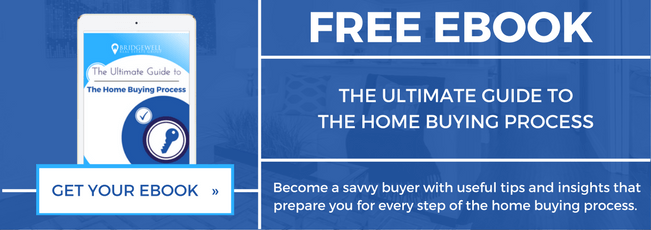How to Flip a House
What to Consider
So you want to flip a house… you’ve watched about 100 shows on HGTV and they make it look super easy. All you do is buy a fixer-upper, throw a little money in to it, and in two weeks it’s done and you’ve made $100,000. Easy peasy right? Wrong.
The reality of flipping houses for profit isn’t quite as simple as reality TV would like to make us believe. There’s a ton of behind the scenes planning, budgeting, and work that goes in to it, and if you’re considering buying a house to flip it, there’s a lot that you need to prepare yourself for. This blog discusses some pro-tips on how to flip a house in British Columbia (BC), Canada to help you determine whether it is both cost and time effective for you to flip a house. Here’s everything you need to know about how to flip a house:

Flipping a house might not be as easy as you think. Read below to determine the steps on how to flip a house to decide whether or not it’s for you.
-
It’s all about doing the math.
What’s your budget? How long is the project going to take you? Time is of the essence, how much money are you going to need to carry from your purchase completion and your sale completion. Think property taxes, mortgage payments, strata maintenance fees if applicable, and utilities. Make a budget, make a game plan for the project, and stick to it. Without preparing this information and a ‘business plan’ in advance you could be wasting time, and time is money.
-
How long is it going to take you to do improvements?
One of the basics when it comes to how to flip a house is making a list of what you think will need to be done and how long it will take to do it. How long is it going to take you to get the permits? How long is it going to take you to renovate? What kind of market will you be in once your estimated time of completion arrives – summer or winter? You’ll need to know the estimated time of completing the project so that you can budget accordingly.
-
What is the return on investment of your improvements?
This step is extremely important when it comes to overall profit and total return on investment. Focus on your renovation dollars in the right places. What are the highest ROI upgrades? What do people focus on when they go through an open house? Typically the kitchen, bathrooms, and flooring [laminate/hardwood] are the highest return on investments. For cosmetic tasks like those, you may want to think of hiring a designer with an eye for colours and experience in what is the new ‘modern.’ If you’re dealing with a detached home, you may want to think about the more ‘unsexy’ tasks like replacing the roof, hot water tank, and windows, which are the questions that come up the most as they are some of the biggest bills to take on.
-
How much profit can you make?
This is one of the most important factors in choosing what property to buy, and at the end of the day you’re just looking at profit. Buy cheap, sell high. Don’t get emotionally attached when you’re purchasing the property – you’re an investor and this property isn’t end-game for you. You’ll want to look for homes in up and coming areas that aren’t renovated yet. When you sell it, the buyer’s aren’t going to care how much profit you want to make – they’re just going to care about whether it’s worth what you’re advertising. Find out what prices on the street and neighbourhood are selling for when renovated, and factor in that you’re most likely not going to receive 100% return on investment for all of the renovations you complete. Can you still make money once you factor in a partial return on investment for renovations, the estimated sales price once renovated, the utilities/taxes/mortgage/etc. paid during the time of renovation, and closing and realtor costs? Again, run the numbers, and buy cheap and sell high.
-
Know your target market.
If you’re looking to sell a renovated house for over $1,000,000, then remember that the target market at this price point is different than a $500,000 condo. There have been a number of times [in fact this just happened to one of our buyers last week], that buyers have walked away from cheap flips because of poor quality workmanship and materials, as well as a lack of disclosure. There are different expectations when it comes to features and finishes at each price point, and having a realtor that has experience in your location and a variety of styles of homes will help you to understand what needs to be done and what can be skipped.
-
Permits, permits, permits.
Permits are extremely important when you flip a home, because the buyers will most definitely ask what you’ve done and whether or not it was done with approval. Buyers will pay more for a home that was renovated with permits, because they will trust that it was done properly and that there won’t be any headaches once they move in. You cannot just tear down walls and change plumbing because you want to – especially in a strata building. Make sure that if you’re in a strata complex that you receive strata [and city approval if necessary] to make changes. If you’re in a detached home, go to the city and make sure that you can proceed with renovations and additions and apply for a permit.
-
Location is key.
The amount of money that anyone makes on a home just comes down to basic demand and supply. If you buy in a hot neighbourhood, with transit, amenities, and schools nearby, then you’re more likely to make money on the home. If the market happens to be low supply when it comes to renovated homes, and the demand is high, then you’ll make even more. The key is to buy a home that needs work for less, renovate it, and then sell for more when demand for renovated homes in hot.
-
A great contractor will make you money – no shoddy work. If you do it yourself, make sure you do a good quality job.
If you aren’t a contractor yourself, make sure you align yourself with someone you know, like and trust. Their ability to manage costs and a timeline will impact your profitability, and if your contractor does shoddy work, you’ll feel that in your pocketbook.
-
There are no guarantees, and no one has a crystal ball.
Nobody knows what the market is going to do, and in 6 months it could drop or rise $100,000. When you’re flipping a house there are no guarantees when it comes to making money, but with that being said it’s one of those ‘high risk high reward’ scenarios.
-
Flipping houses is a second job.
Not everyone can take on flipping a house. It’s a second job, and for many people it’s their only job. It will take time, long work hours, lots of ups and downs, managing other people and work schedules, and making sure that the project is on track for time. If you don’t want to put in the work hours and just want easy money, then flipping a house is not for you.
-
Make sure you use a realtor that has experience in flipping houses.
The process of marketing the home, selling the home, preparing the home, and knowing the related documents that the buyers will want in a flipper will get you the extra money that you want. Make sure that when you’re flipping a house that you use a realtor that is experienced and knows what they are doing. As always, give us a call to start a conversation – we’re always open to hearing from you.
—
If you’ve considered flipping a house and are wondering whether it’s for you, give us a call or text at 604-319-0200 or email [email protected] to start a conversation. We can help you to determine the best flippers to help you make a hefty profit, and get you started on your home flipping journey.



